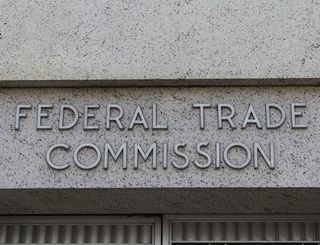Machinima Settles With FTC Over YouTube Xbox Plugs

The Federal Trade Commission has decided not to take action against Microsoft or Starcom over deceptive endorsements.
The FTC is using its unfair and deceptive practices authority to crack down on paid social media mentions and reviews that it says were insufficiently tagged as paid promotions, in this case YouTube plugs for the Xbox One.
California-based Machinima agreed to settle FTC charges it "engaged in deceptive advertising" by paying people to post YouTube videos endorsing Microsoft's game system and games. The FTC said Machinima was part of a marketing campaign headed up by Microsoft's ad agency, Starcom MediaVest Group and had guaranteed that the "influencer" videos would be viewed at least 19 million times.
Machinima paid influencers as much as $30,000 to produce and post YouTube videos based on pre-release versions of the games.
"The 'influencers' paid by Machinima, Inc., failed to adequately disclose that they were being paid for their seemingly objective opinions," the FTC said in announcing the settlement.
Machinima has agreed not to repeat the deceptive conduct and to make sure that its "influencers" clearly disclose when they have been paid for endorsements.
“When people see a product touted online, they have a right to know whether they’re looking at an authentic opinion or a paid marketing pitch,” said Jessica Rich, director of the Bureau of Consumer Protection, in a statement. “That’s true whether the endorsement appears in a video or any other media.”
Broadcasting & Cable Newsletter
The smarter way to stay on top of broadcasting and cable industry. Sign up below
The FTC found that while Microsoft and Starcom were ultimately responsible for the failure of the influencers to disclose their material connection to the companies through Machinima, the agency closed its investigation into the companies' role at the same time they announced the settlement.
"[U]pon careful review of this matter, including nonpublic information submitted to the FTC, we have determined not to recommend enforcement action against Microsoft or Starcom at this time," the FTC said, based on a variety of factors. (The "at this time" is standard boilerplate for such letters, a way to signal that closing the investigation does not mean a finding of no violation any more than a settlement signals there was a violation).
"Commission staff considered the fact that these appeared to be isolated incidents that occurred in spite of, and not in the absence of, policies and procedures designed to prevent such lapses," the FTC said. "The companies also quickly required Machinima to remedy the situation after they learned that Machinima was paying influencers without making the necessary disclosures."
The vote to issue the complaint was 5-0.
Contributing editor John Eggerton has been an editor and/or writer on media regulation, legislation and policy for over four decades, including covering the FCC, FTC, Congress, the major media trade associations, and the federal courts. In addition to Multichannel News and Broadcasting + Cable, his work has appeared in Radio World, TV Technology, TV Fax, This Week in Consumer Electronics, Variety and the Encyclopedia Britannica.

